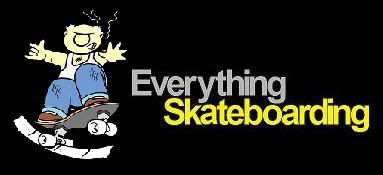
This weekend, I wrote this little piece for Michael Brooke at AXS Longboarding Business. Knowing full well that it's probably gonna get edited down to size, and that the "bad words" (ie, the "fun ones") might just disappear, I decided to throw it up on the 'ol blog for posterity:
One of the best things about being a retiring skate-industry consultant is getting the “thank you” calls from clients (and friends) from far and near, graciously thanking me for my help over the last five years. Last week, I got one of these calls from a guy that I wouldn’t necessarily call a “client”, per se. Rather, it just-so-happens that he owns a small skateboard company. And I just-so-happen to be a skate-industry consultant. But really, we’re just friends.
In
any rate, this guy gave me a call last week to thank me for my help, anyway.
Which is always nice. But in this case, it also left me a little bit perplexed.
“What’d
I do…?!”, I asked. Because I honestly didn’t remember doing much of anything
special at all, outside of maybe buying him a cold PBR once in a blue moon.
“The
Haters”. Oh, yeah. This is actually a very, very common problem across this
industry. It can also be called “The ‘No’ Men”, “The Un-Friendly, ‘Friendly’
Competitors”… or, my personal favorite, “The So-And-So Syndrome”. The
skateboard industry is sort of weird that way. Everybody’s always afraid to do
anything that doesn’t somehow sit right with all of the So-And-So’s out there.
Even if So-And-So is one of your competitors, or your mortal enemy. And if it
doesn’t make So-And-So happy, well then, maybe it’s just best not to do it at
all.
For
my part, I’m not entirely sure where this “So-And-So Syndrome” originated, or
why it’s so pervasive in our industry, or across our community culture. Is it
because teenagers are intrinsically insecure, and overly sensitive to peer
pressure? That might explain away the “cultural” aspect of this, but it certainly
doesn’t jive very well with “the industry” side of things, where our leading
skateboard companies are [generally] owned and operated by [hopefully] mature
and enlightened adults. For some reason, though, it just doesn’t always work
out that way. Even at the industry level, our “industry leaders” are oftentimes
much more apt to act like insecure teenagers, than bona-fide men living in a
hyper-competitive world. I do work in other industries quite removed from
skateboarding, and while the So-And-So Syndrome might exist in some insignificant-to-imperceptible
form, it’s still nothing quite like the over-the-top peer-pressure experiences
that I’ve perpetually had to deal with, within the skateboard industry.
Kilian Martin is the perfect example of somebody that live's by nobody's rules, except his own. His only limits he recognizes (if he has any at all) are those that limit his own imagination. Where would Kilian be if he skated "the way everybody else does", or "the way he's 'supposed' to"...?
Even better question: Where would skateboarding be, without Kilian...?!
If you're so narrow-minded that you can't appreciate the invention and imagination of Kilian Martin, then you just suck...
Regardless
of the source, the So-And-So Syndrome has been a particularly menacing problem
that I’ve fought hard to neutralize amongst my clientele for the last five
years. Whenever the So-And-So Syndrome pops up in a conversation- and it always
does- I always like to ask my clients a few questions, to illustrate the true
nature of the problem. “Hey, do you mind if I ask you a few things really quick…?”
“Sure!
Shoot.”
“Okay,
here goes: Is So-And-So, by any chance, putting food on your table every night…?”
“Uhhh…
no?”
“Is
So-And-So paying your mortgage, or your rent…?”
“Nope.”
“Is
So-And-So saving up for your retirement…?”
“No…?”
You can usually start to see the light bulb going off, right about now. If you
can’t, then you’ve got even bigger problems than you originally thought.
“Is
So-And-So fucking your wife, or raising your kids…?
“Hopefully
not…!”
“Well
then, why in the hell does it matter what in the hell So-And-So thinks
about anything…?! After all, So-And-So apparently ain’t doin’ anything
good for you…!”
Yes,
it’s a really funny argument to make. Yes, it always gets at least a chuckle-
maybe even two. Unfortunately, it also happens to be true. That part ain’t
always so funny…
At
the end of the day, I’m a huge believer in the merits of the competitive
spirit, and of the relentless pursuit of individual liberty. Competition, after
all, brings out the very best of our industry, and of our leaders. Competition
brings us technical progress, better manufacturing practices, more consistent
quality control, and more value for the consumers… who also happen to be “the
skaters” that we should really be worried about over here. Because
that’s who we’re all really working for, right…? The skaters, and the customers…? Not,
the fucking So-And-Sos.
But
as my clients will happily attest to, there’s also very real value in turning
your back on “the haters”, and doing whatever you think is right, or
whatever makes you happy. And I hammer that home, every chance I get. Because
long after the sales are tallied, the balance sheets are compiled, the stocks
are re-valued, the market share is determined, the awards are won, and the
props are given… the bottom line is that if you aren’t happy with the outcomes,
then none of it was really worth a damn. And make no mistake: You’ll never find
any measure of true happiness, if you insist on perpetually living your life
based on what’s gonna make your enemies and your competition happy.
That
said, I would challenge everyone across this industry… from woodshop operators,
to brand managers, to advertising and sales executives, to distributors, to skate-shop
owners, all the way to team riders, sales reps, and skate-shop employees… and
even all the way through to the skaters, themselves… to maybe stop for a minute,
put your thinking cap on, and take a cold, hard look at why they’re doing
whatever they’re doing. And more importantly, who they’re doing it for. And then,
make some changes until they’re completely satisfied that whatever they’re doing, they’re ultimately doing it for themselves,
and nobody else.
